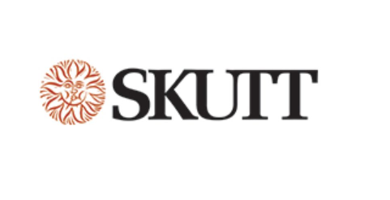Interview Bias: How It Happens & How to Avoid It, Part 2

This article is the second in 180one’s two-part series looking at how your organization can avoid interview bias and improve your hiring processes. To read part one of this series, click here. To learn more about the best practices around Diversity, Equity and Inclusion (DEI) during the hiring process click here to read our recent article
Part II
Have you ever felt strongly within the first five minutes of meeting a job candidate whether she or he would be a good fit for the job? We’re social creatures, and it’s human nature to make a quick decision on whether we like someone, based on our own background and beliefs. Likewise, in a business setting, hiring managers can be powerfully and unconsciously influenced by their biases throughout the candidate selection and interview process.
Trying to coach your hiring team to completely let go of bias goes against human nature, but you can guide them on how to be aware of and diminish implicit biases. Then you can put your company resources toward de-biasing hiring procedures rather than mindsets, so that it is a lot harder for personal feelings to influence an objective assessment of the best candidate for the job.
Types of Interview Bias
First, to look at how you can de-bias your interview process, consider the most common types of interview bias you will need to tackle, as found by personnel psychologists and organization researchers:
“Like Me” Bias: When a candidate appears to be similar in style or personality to the hiring manager, and as a result, the hiring manager feels that candidate would be best suited for the job.
Halo/Pitchfork Effect: The Halo Effect happens when one positive characteristic of the candidate influences the entire interview process in favor of the candidate. The Pitchfork Effect happens when one negative characteristic overshadows the candidate’s overall qualifications.

Stereotyping Bias: Our inclination to hold an opinion about how a person will think or act because they’re a certain race, gender, religion or another characteristic.
Nonverbal Bias: When a candidate is assessed in a positive or negative light because of an observed attribute, such as body language or an aspect of physical appearance.
Negative Emphasis Bias: When the interviewer receives one piece of negative information and give it more weight than all the positives about a candidate.
Cultural Noise: The interviewer’s ability, or lack of, to distinguish between a candidate’s answer that is crafted to be more socially acceptable or on-trend rather than revealing their true belief or experience.
Contrast Effect: When a candidate with a stronger presentation style interviews after a weaker-style candidate, the stronger-style candidate may appear more qualified because of the contrast between the two.
(There’s more info on these common biases in Part I of our series, which you can find here.)
In a nutshell, if you think a candidate is or isn’t going to work based on your first reaction or stereotypes, you’re likely to look for reasons to hire or not hire. We find that some of our clients make a judgment based on a candidate’s current or most recent employer, commenting for example that “Their culture is very different than ours and they wouldn’t be a good fit here.”
For example, a candidate may currently be employed in an organization that has a reputation of being slow in decision making, and the hiring organization sees themselves as fast paced decisive. However, just because someone works at a company with a vastly different culture, it doesn’t necessarily mean that the candidate prefers this culture or can only work in that type of culture. The candidate’s current company culture might be a reason why they are looking to make a move.
Yes, these biases stem from human nature, but you can start to neutralize their impact before your candidates even walk through the door. And there’s good reason to make de-biasing a priority – recent studies of diversity in senior-level staffing in a variety of industries have shown definitively that a more diverse workplace is a higher-performing workplace.
For example – in their latest report, “Diversity Matters,” the global management consulting firm McKinsey & Company found that more ethnically diverse companies are 35 percent more likely to outperform their competitors, and that more gender-diverse companies are 15 percent more likely to outperform their competitors.
Strategies to Diminish Interview Bias & Diversify Your Team
You can begin de-biasing your process by readying your hiring committee for their resumé reviews and interviews. Create a preparation plan that highlights how to stay aware of diversity, equity and inclusion throughout the hiring process. That plan could include:
- Briefing session: Your hiring manager can describe the company’s goals for the position, and how those goals tie to the diversity, equity and inclusion goals of your organization overall.
- Self-Assessment: “Do I have bias?” can be a hard question to ask yourself, but it’s important to be self aware when participating in the hiring process. You can prepare your hiring team by providing research about implicit bias, and encourage them to do research of their own, such as watching this quick video series about implicit bias created by UCLA’s Office of Equity, Diversity and Inclusion.
A technique we at 180one recommend to mitigate bias is assembling a hiring committee, and picking a diverse team, including members from a variety of ethnicities, gender identities, and age groups who you know work well together. Assign each member or group of members a specific aspect or two of the candidate to focus on. This keeps interview team members in an objective frame of mind about the candidate.
For example, you could assemble a hiring committee of six, and break them into teams of two, which each focusing on two categories:
- Team 1: Focus on the candidate’s executive leadership skills and business partnering.
- Team 2: Focus on the candidate’s relatability to company culture and potential for good fit.
- Team 3: Focus on the candidate’s technical ability to do the job.
With this technique, members of your hiring committee won’t wander into other areas in which there may be unintentional judgments that are not relevant to the job or the candidate’s readiness.
For the next step, personnel psychologists and management consultants recommend blind hiring to remove bias from the process and develop a more diverse candidate pool. You can use a search firm like 180one to prescreen candidate application materials with your hiring goals in mind, so you are not seeing any applicant data that may trigger positive or negative associations before a candidate walks through your door.
When you get to the interview stage, a structured interview that standardizes your questions and the order they are asked will significantly cut back on subjectivity. Personnel psychology research has shown that the more social exchange of an unstructured interview opens up the most opportunities for bias, yet predicts less than 15% percent of ultimate employee performance. You will get a much more objective picture of the candidate by focusing on questions that are skill-based and allow the candidate to explain how he or she would handle situations on the job.
During the interview, consider scoring or taking notes on the answer to each question right after it’s answered. Then after the interviews are completed, the feedback loop among your hiring committee members is very important: they can compare candidate answers side-by-side for each question and rank those answers under the hiring-focus categories your team has set. This systematic comparative evaluation also cuts back greatly on opportunities for biases to guide their impressions.
Companies invest significant time and money to attract the most qualified candidates for executive-level positions, and you want that investment in the hiring process to lead to selecting the most suited person for the job. Diversifying hiring committee assembly, preparing that committee with bias training, structured candidate interviews, and comparative evaluation of answers are smart steps to take in diminishing interview bias and choosing the best talent to serve your organization.
Sources cited: Harvard Business Review | McKinsey & Company, Inc.





